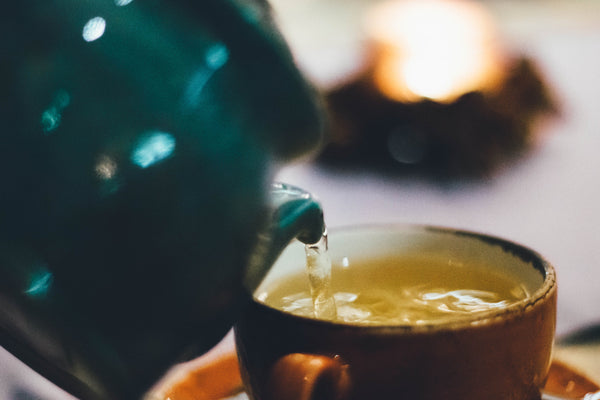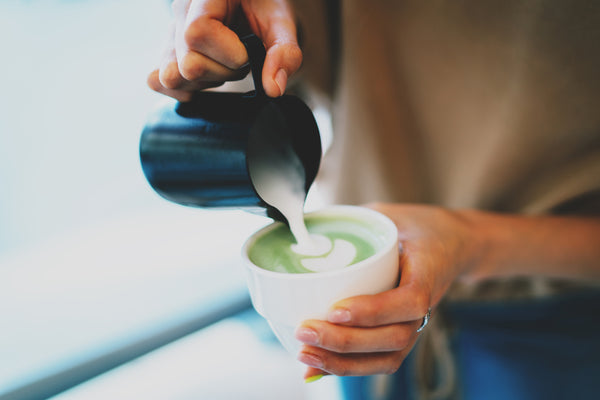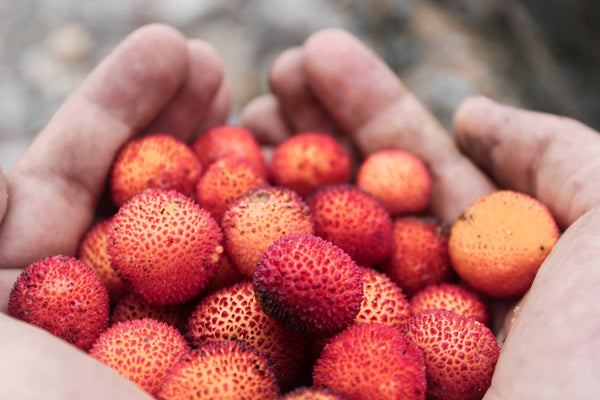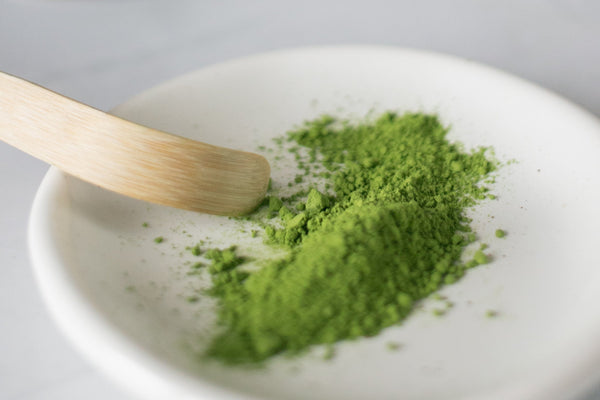Finding a way to lose weight that’s healthy, simple, and also delicious might sound like a made-up fantasy, but it exists, and it’s as easy as making a cup of tea! There are a lot of benefits to drinking tea, including weight loss. Read on to find out some surprising facts you may not know about tea and weight loss, including a list of different types of teas and how they each affect your body in different ways. 
1. Polyphenols in tea may help you lose weight
Seriously! It’s not too good to be true. If you’re looking for a way to lose weight without any negative side effects, drinking tea might be the answer.
The concept of using tea for weight loss, in addition to its many health benefits, has been around for hundreds, possibly thousands of years. With the advancement of medicine and scientific capabilities, we can now explain exactly how and why tea affects your body and what makes it so great for weight loss. 
The benefits of drinking tea to lose weight stem from the polyphenols in tea.
Polyphenols affect the way your body absorbs and digests sugars and fats by changing the way fat droplets merge with lipase: the enzyme that our bodies use to break down fats. Studies show that while in your gut, tea reduces the amount of intestinal surface area that absorbs fat and helps flush the fat through your digestive system and out in your feces. Polyphenols also improve insulin resistance and are a proven dietary therapy for treating diabetes.
2. You can prepare your tea however you like 
Wondering how to drink tea to lose weight? The way you choose to prepare your tea eg. loose leaf or bagged, iced or hot, milk or no milk, doesn’t change the effectiveness of drinking tea to lose weight.
More important than the way you prepare your tea is how tea is grown, harvested, and processed.
The amount of caffeine and catechins (a type of polyphenol) in your tea has a direct correlation to the amount of pharmacologically active compounds (ingredients that affect your body) in the tea. Adding tea extracts to your brewed tea will greatly increase the amount of polyphenols entering your body. More polyphenols = more sustained weight loss!
3. Lychee extract in your tea may help boost weight loss 
If you’re looking to double down on the weight-loss ingredients in your tea, try preparing it with lychee extract.
Lychee extract has a delicious sweet and tangy flavor and contains the polyphenol Oligonol. Oliginol can help reduce BMI, burn belly fat, and improve insulin resistance.
Mixing lychee with your tea makes a yummy body fat-burning super drink!
4. Tea helps detoxify your body
Tea is the second most consumed drink in the world - water is the first. The reason tea is so popular goes beyond its delicious taste and fat-burning capabilities. Tea is also brimming with antioxidants.
The antioxidants in tea help detox and cleanse your body.
Antioxidants reduce the risk of tons of diseases. They support brain function and eye health. They reduce inflammation and combat free radicals in your body. The antioxidants in tea help support your body in so many amazing ways.
5. Tea can help combat bloating
During your weight loss journey, you may experience bloating.
Bloating happens when your stomach feels tight or full of pressure and may be accompanied by a visibly distended or rounded belly. When you have a round, bloated belly, you’re certainly not feeling your best. If you’ve ever felt bloated, you know how uncomfortable it can be and how badly you want it to go away.
The catechins in tea are proven to help regulate the gut microbiome which can lead to less gas, soothing digestive discomforts and stopping bloat. If you want a double whammy, mix your tea with pineapple, which is chock full of debloating enzymes, and kick your bloated belly to the curb.
6. Two to three cups of tea a day may help you lose stubborn weight
While the amount of weight you may lose while drinking tea will fluctuate based on multiple factors, including your age, sex, and overall diet and exercise regimen, studies have shown that you don’t need to drink a lot of tea to see weight loss effects. 
Drinking just 2-3 cups of tea a day can give you more energy, kick-start your metabolism, and get you going on your journey to tea-assisted weight loss.
To make drinking tea every day easier, try drinking tea as a part of your morning ritual. Building in time for healthy rituals will boost your mood and improve your mental clarity. Set realistic goals for yourself and succeed; drinking tea every day for just 30 days may show detox, weight loss, and overall wellness results.
The best teas for weight loss

All teas contain polyphenols! Even herbal teas. The difference in weight loss efficacy from one tea type to another depends greatly on the amount of polyphenols in the tea.
Because the growing, harvesting, and processing methods have such a great effect on the polyphenols in tea, and you can’t tell the polyphenol count just from looking at the tea, it can be difficult to choose one tea over another for weight loss.
Luckily, scientists have done some work for us, and we can now categorize tea based on type and typical polyphenol count.
The best tea for weight loss and detox is green tea: it contains the highest count of polyphenols and caffeine.
The bottom line
Drinking tea is a great way to boost your overall health and lose weight, and green tea is the most effective tea to drink for weight loss because of its high concentrations of polyphenols.
Disclaimer: These statements in this blog post have not been evaluated by the Food and Drug Administration. The information provided here is for educational purposes only and should not be considered medical advice. It's essential to consult with a qualified healthcare professional before making any dietary or lifestyle changes.
References:
Pan, H., Gao, Y., & Tu, Y. (2016). Mechanisms of Body Weight Reduction by Black Tea Polyphenols. Molecules (Basel, Switzerland), 21(12), 1659. https://doi.org/10.3390/molecules21121659
Nishihira, Jun & Sato-Ueshima, Maremi & Kitadate, Kentaro & Wakame, Koji & Fujii, Hajime. (2009). Amelioration of abdominal obesity by low-molecular-weight polyphenol (Oligonol) from lychee. Journal of Functional Foods. https://www.sciencedirect.com/science/article/abs/pii/S1756464609000565
Williamson, G., & Sheedy, K. (2020). Effects of Polyphenols on Insulin Resistance. Nutrients, 12(10), 3135. https://doi.org/10.3390/nu12103135
Bond T, Derbyshire E. Tea Compounds and the Gut Microbiome: Findings from Trials and Mechanistic Studies. Nutrients. 2019; 11(10):2364. https://doi.org/10.3390/nu11102364
Pan, M. H., Yang, G., Li, S., Li, M. Y., Tsai, M. L., Wu, J. C., Badmaev, V., Ho, C. T., & Lai, C. S. (2017). Combination of citrus polymethoxyflavones, green tea polyphenols, and Lychee extracts suppresses obesity and hepatic steatosis in high-fat diet induced obese mice. Molecular nutrition & food research, 61(11), 10.1002/mnfr.201601104.https://doi.org/10.1002/mnfr.201601104
Mazibuko-Mbeje, S. E., Dludla, P. V., Johnson, R., Joubert, E., Louw, J., Ziqubu, K., Tiano, L., Silvestri, S., Orlando, P., Opoku, A. R., & Muller, C. J. F. (2019). Aspalathin, a natural product with the potential to reverse hepatic insulin resistance by improving energy metabolism and mitochondrial respiration. PloS one, 14(5), e0216172. https://doi.org/10.1371/journal.pone.0216172
Brimson, J. M., Prasanth, M. I., Malar, D. S., Sharika, R., Sivamaruthi, B. S., Kesika, P., Chaiyasut, C., Tencomnao, T., & Prasansuklab, A. (2021). Role of Herbal Teas in Regulating Cellular Homeostasis and Autophagy and Their Implications in Regulating Overall Health. Nutrients, 13(7), 2162. https://doi.org/10.3390/nu13072162
Tea. The Nutrition Source. (2023, April 4). https://www.hsph.harvard.edu/nutritionsource/food-features/tea/#:~:text=Herbal%20teas%20contain%20polyphenols%20as,types%20with%20varying%20flavonoid%20content







